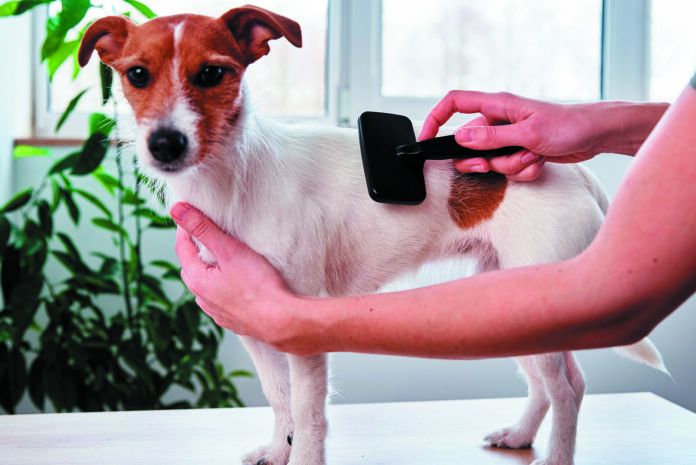Brush Your Short-Haired Dog, Too
Even short-haired breeds like beagles and boxers require regular brushing, not just Afghans and collies. Why?
Brushing doesn’t just make a dog look good. It distributes protective oils from a dog’s skin throughout her coat, removes dirt, helps keep her skin free of irritants, and, in general, helps the hair form a uniform barrier against contaminants. Hair that’s well taken care of even makes a good barrier against harmful bacteria. And it helps you discover things that shouldn’t be there, like a tick or a new lump or bump.
Of course, brushing also just plain feels good to many dogs. And it increases the amount of time you spend paying attention to them, which they love.
To Prevent Dog Bites,
Don’t Rush Socialization
n You probably already know a number of ways to cut down on the risk for dog bites: never leave dogs and very young children alone together; be aware that your dog may be more likely to bite if he is in pain; and don’t pet dogs you don’t know without getting permission both from the dog’s human guardian and the dog himself. The National Dog Bite Prevention Coalition provides yet another worthy tip: Take it slow.
If your dog has been mainly interacting with your family since you brought him home, don’t rush out into crowded areas or dog parks. Try to expose your dog to new situations slowly and for short periods of time, arrange for low-stress interactions, and give plenty of praise and rewards for good behavior.
Fear or discombobulation can make dogs aggressive. Taking it slow helps erode those feelings.
Is Your Dog’s Arthritis Making Her
Feel Depressed?
n It is well known that among people, depression is a hallmark of arthritis. It makes sense. Any kind of chronic pain will lead to a chemical stress response in the brain, and that stress then gets interpreted as depression. Could the same be true of dogs?
It’s certainly a reasonable thing to wonder. In people, there’s normally a balance in the brain between what are known as excitatory and inhibitory neurotransmitters. But with any long-term stress, that balance gets out of whack. And the way dogs’ brains work is in many ways so similar to the way ours do.
Even if dogs’ brains do not work like ours in this regard, the pain and loss of mobility alone are enough to dampen a dog’s outlook on life. Thus, if your dog has been diagnosed with arthritis and also seems very unhappy, there’s probably more than a fair chance you’re not imagining it. Be patient and kind in order not to make things worse.





